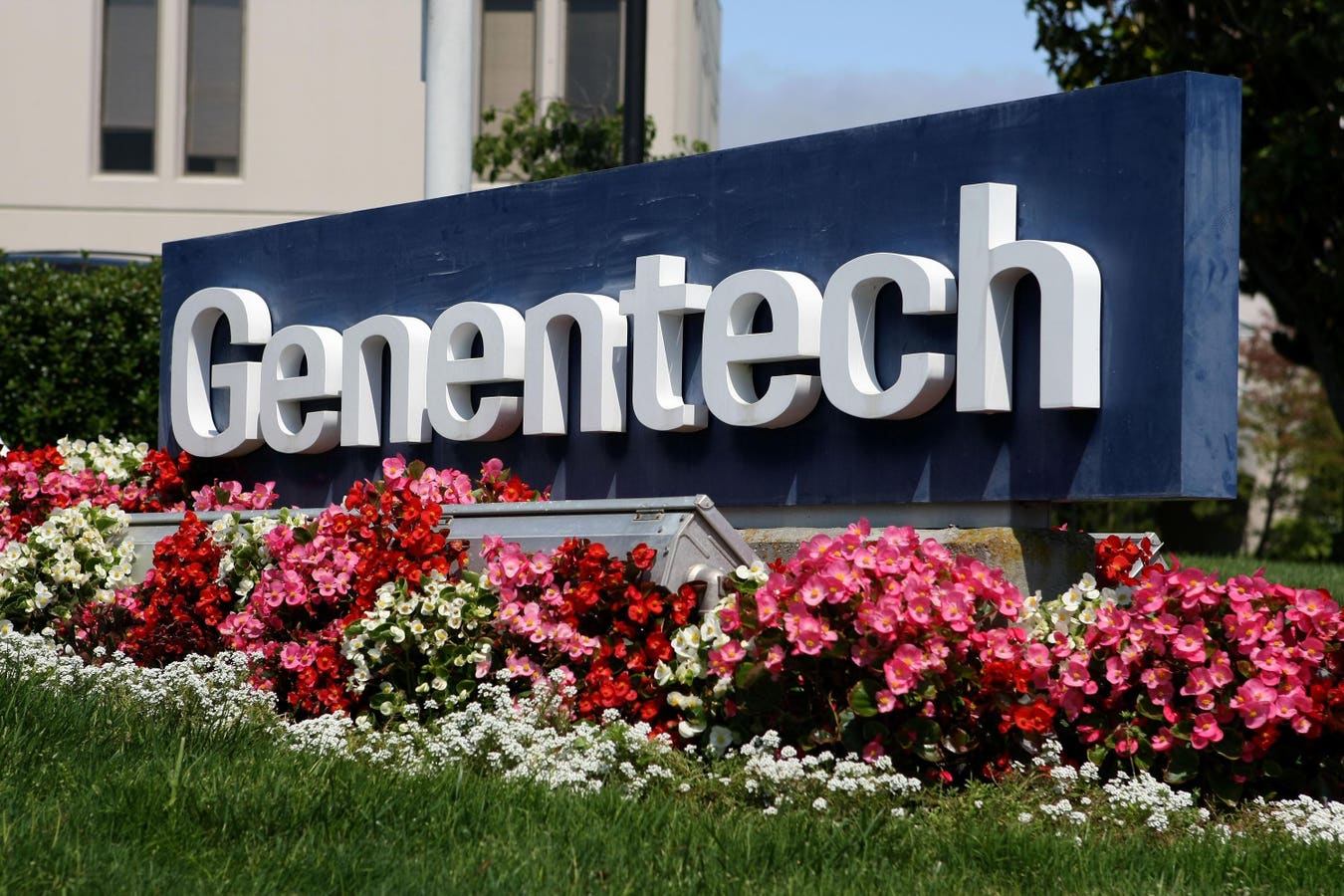InnovationRx is your weekly digest of healthcare news. To get it in your inbox, subscribe here.
On Tuesday, Roche subsidiary Genentech announced that it’s entered into a multi-year research collaboration with Nvidia. The goal of the partnership is to take advantage of generative AI technology to speed up the discovery of new drugs. Genentech is bringing its proprietary algorithms to the table, which will run on Nvidia’s DGX cloud services. The biotech company will also be taking advantage of Nvidia’s BioNeMo platform, which is used by biopharma companies to customize computational models at scale.
“AI can play a transformational role in accelerating drug discovery and development — as it has across many parts of healthcare and life sciences,” Kimberly Powell, Nvidia’s vice president of healthcare, said in a press release. Earlier this year, Insilico Medicine announced it had entered into phase 2 clinical trials with an AI-designed drug to treat a chronic lung disease.
This Startup Raised $38 Million To Fill One Of The Biggest Gaps In Drug Discovery
Khosla Ventures-backed Vivodyne is building human organ tissues in the lab that can be used for preclinical testing of potential drugs, as well as AI systems that can rapidly collect and analyze data from those tests.
Read more here.
Pipeline & Deal Updates
Medical Watch: Medtech company Masimo received FDA clearance for the continuous oxygen saturation and pulse rate monitoring functions of its W1 watch as it makes a push to bridge technology in the hospital and the home.
Lower Carbon: GlaxoSmithKline says the 35 million patients prescribed its rescue inhaler Ventolin account for around 49% of the company’s carbon footprint. The company is starting phase 3 trials of a new propellant it says could reduce carbon emissions from the inhaler by around 90%. GSK is targeting regulatory submissions in 2025.
Diagnostics: Universal DX has announced a strategic collaboration with Quest Diagnostics to bring Universal’s blood screening test for colorectal cancer to healthcare providers, pending regulatory approval. Universal also raised a $70 million series B.
Anti-inflammatory: Connect Biopharma announced it granted Simcere an exclusive license to commercialize its anti-inflammatory monoclonal antibody treatment rademikibart in China. The first disease target in that country will be atopic dermatitis.
How Viz.ai Uses Artificial Intelligence To Treat Stroke Patients Faster
The San Francisco-based startup has 12 FDA-approved algorithms to flag problems, agreements with more than 1,500 U.S. hospitals, and big plans to work with drug companies to reduce roadblocks in healthcare.
Read more here.
Other Healthcare News
U.K. regulators approved the world’s first Crispr gene editing therapy, Vertex’s Casgevy, to treat two blood disorders: sickle cell disease and beta thalassemia.
Ahead of the holiday season, the CDC says the majority of eligible Americans have not received an updated Covid vaccine, flu shot, or RSV shot. RSV cases are spiking in the southeast United States.
Extreme heat across Europe last summer killed over 70,000 people and this year is on track to be even worse.
The WHO has warned antimicrobial resistance is a “top global public health threat.”
Across Forbes
Bhutan Built A Bitcoin Mine On The Site Of Its Failed ‘Education City’
Meet The Iranian-Born Billionaire Helping NASA Get Back To The Moon
Bitcoin Is Up 120% This Year, Here Are Four Other Cryptos To Buy, HODL Or Sell
What Else We are Reading
Lost in the Mix of Medicaid ‘Unwinding’: Kentucky Cut Off Her Health Care Over a Clerical Error (KFF Health News)
What Eli Lilly’s Zepbound reveals about the intricate process of naming drugs today (STAT)
ChatGPT generates fake data set to support scientific hypothesis (Nature)
Read the full article here





